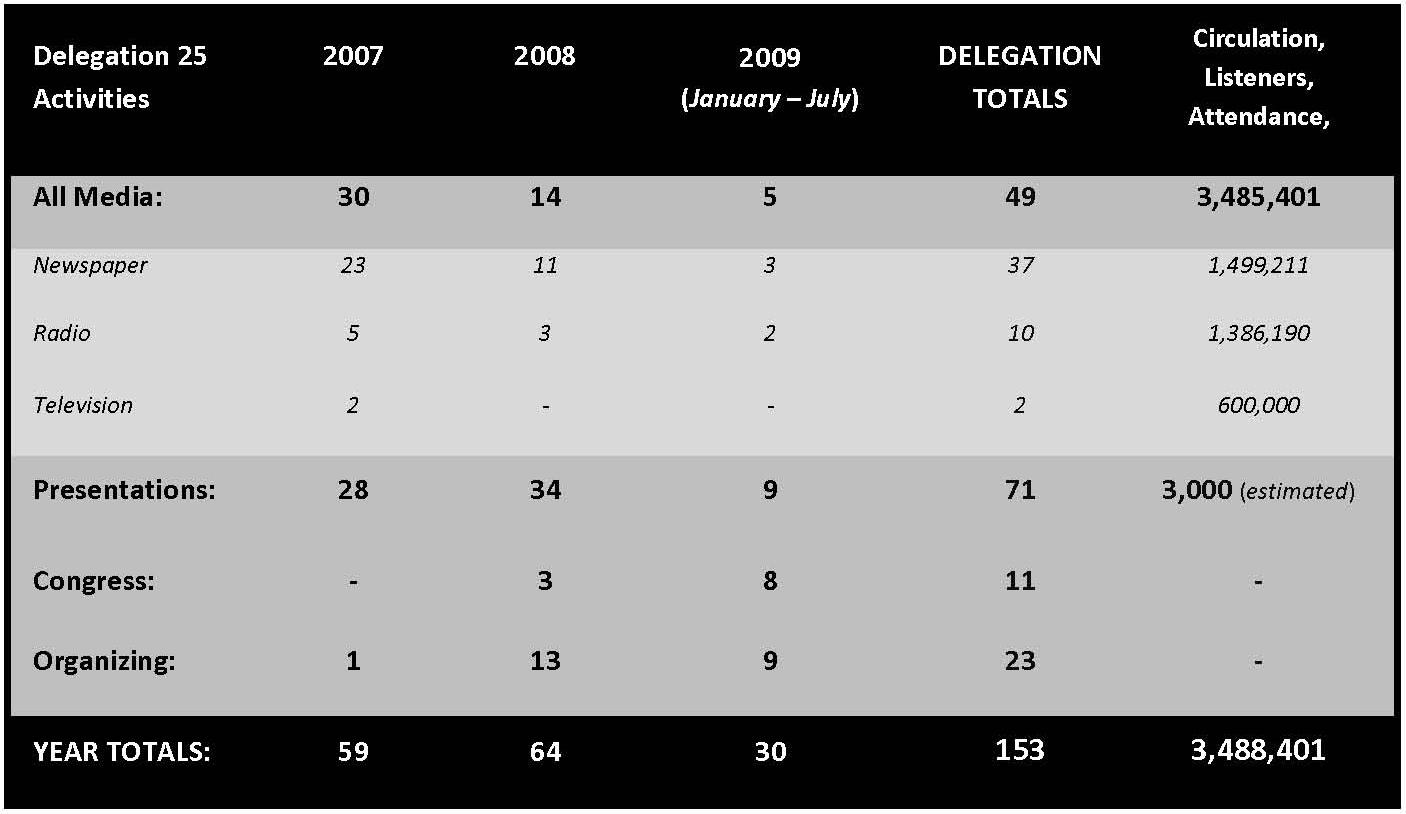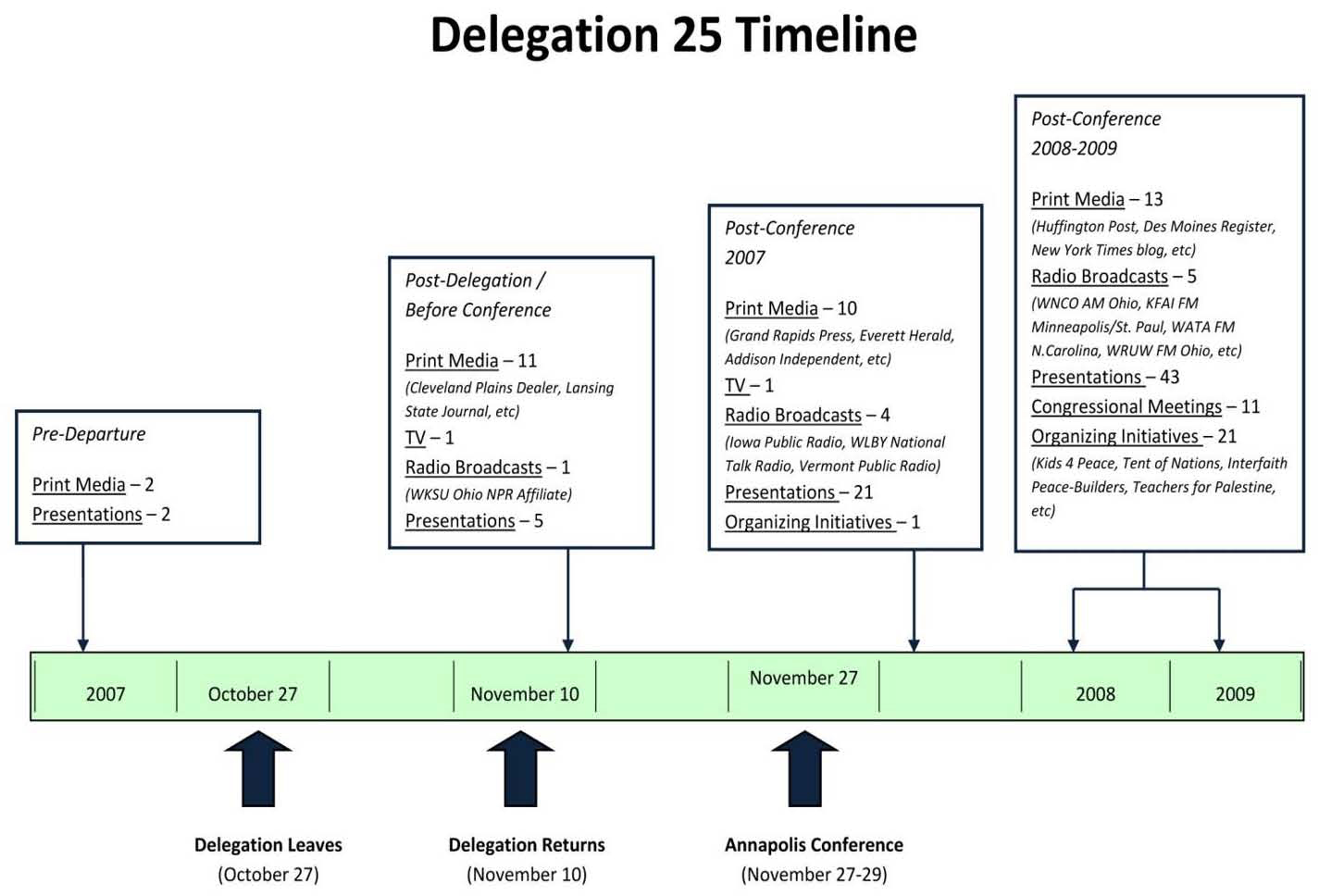The Impact of
Interfaith Peace-Builders Delegations
Building a Community to Take Action:
A Case Study
Measuring our Impact. The average IFPB delegation reaches millions through media advocacy, speaking events and grassroots organizing initiatives. This work critically affects public discourse around the country and impacts the policy debate.
This Case Study analyzes the impact of IFPB’s 2007 Olive Harvest Delegation (our 25th delegation). The 23 people who traveled on the delegation returned to the US days before President George Bush convened a large-scale Middle East Peace Conference in Annapolis, Maryland. Returning to communities across North America, delegates brought to the debate both their eyewitness experience and the voices of Palestinians and Israelis committed to nonviolence, human rights and peace with justice. In doing so, the delegation reached nearly 3.5 million people.
In many ways, IFPB’s 2007 Olive Harvest Delegation is illustrative of our broader work. Every IFPB delegation returns from the on-the-ground experience with a variety of skills and greatly enhanced understanding of the Israeli-Palestinian conflict. Every delegation records successes in media advocacy, presentations and congressional engagement (among other accomplishments). This delegation, however, was uniquely situated to impact public discourse and policy regarding the Annapolis Conference.
![]()
 The chart at right illustrates the impact of delegates’ work. In all, education and advocacy activities originating from the group reached nearly 3.5 million before July 2009 (and that number has grown), including:
The chart at right illustrates the impact of delegates’ work. In all, education and advocacy activities originating from the group reached nearly 3.5 million before July 2009 (and that number has grown), including:
- 37 articles, letters to the editor and/or opinion pieces reaching a circulation of nearly 1.5 million;
- 10 radio broadcasts reaching nearly 1.4 million;
- 2 television interviews reaching 600,000 viewers; and
- More than 71 presentations with an estimated audience of 3,000 people.
The immediate success of delegate-led media advocacy demonstrates that Interfaith Peace-Builders delegations can, and do, have an impact on the production of public discourse (see chart below for a timeline of the delegates' activism). Insofar as the policy debate in Washington DC is informed by such discourse, the advocacy of IFPB delegates also resonates in the policy arena.
Years after the Annapolis Conference, conditions on the ground in Israel and Palestine continue to decline, while international efforts for a just resolution to the conflict flounder on unfulfilled promises and dashed hopes. In this context, the efforts of US citizens at the grassroots level have become ever more important. Interfaith Peace-Builders’ delegates are leading the way in their work to impact the policy debate on this crucial issue.


